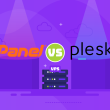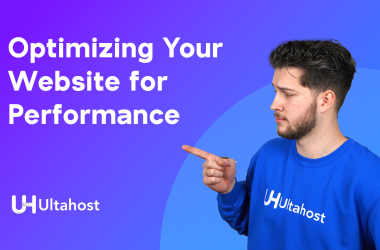
Finding the ideal web hosting solution for podcasters is a common quest. In the ever-evolving digital media landscape, podcasting has the potential to reach unprecedented heights. With over 2 million podcasts and over 48 million episodes on platforms like Apple Podcasts, the demand for compelling audio content has never been greater. As a podcaster, your voice deserves to be heard, your message deserves to be shared, and your brand deserves the spotlight it needs.
However, as you embark on this exhilarating podcasting journey, web hosting is a crucial element often underestimated but undeniably pivotal to your success. Your podcast’s digital home, website, and hosting service are the pillars upon which your podcasting empire will stand.
This comprehensive guide is here to illuminate the path forward. We’ll equip you with the knowledge, strategies, and tools needed to navigate the intricate world of web hosting for podcasters. Whether you’re just starting or seeking to optimize your current setup, you’ll find the reassurance and encouragement to make informed decisions, ensuring your podcast reaches its full potential.
Let’s dive in and master the art of web hosting for podcasters together!
Understanding Web Hosting
Web hosting is essentially the service that makes your podcast available to everyone. It functions as a home for your podcast where all podcast episodes, show notes, and website files are kept. When someone clicks on your podcast, your web hosting provider is used to access it.
Types of Web Hosting
Imagine sharing an apartment with roommates. Shared hosting is a bit like that. You share server space with other websites. It’s cost-effective but can lead to slower loading times and less control.
VPS (Virtual Private Server) Hosting
VPS hosting is like having your apartment in a building. You still share the server, but you have dedicated resources. It’s more powerful and customizable than shared hosting.
Dedicated Hosting
Dedicated server hosting is like owning a whole house. You have the entire server to yourself. It’s powerful, fast, and highly customizable. However, it’s also the most expensive option.
Cloud Hosting
Consider cloud hosting a dynamic, ever-expanding apartment complex. It’s scalable, reliable, and can handle traffic spikes. You only pay for what you use, making it cost-effective.
What is Podcast Hosting?
Podcast hosting stores and delivers audio or video files for a podcast series online. When you create a podcast, you produce episodes in digital media formats (typically MP3 audio or MP4 video) that must be stored on servers and accessible to your audience. Podcast hosting services are crucial in managing these files and ensuring they are easily accessible to listeners through various podcast directories and apps.
Considerations for Podcasters
Bandwidth and Storage Requirements
Podcasts involve large media files. Ensure your hosting plan offers sufficient bandwidth to handle downloads and enough storage for your episodes and website files.
Scalability
You’ll need more resources as your podcast grows. Choose a hosting plan that allows easy scaling to accommodate your increasing audience.
Uptime and Reliability
Podcast listeners expect 24/7 access. Pick a hosting provider like Ultahost with a proven track record of high uptime to ensure your podcast is always available.
Security
Protect your podcast and website from cyber threats. Look for hosting services with robust security features, such as SSL certificates, firewalls, and regular security updates.
Choosing the Right Web Hosting Provider
Selecting the right web hosting provider is pivotal when launching your podcast and establishing a solid online presence. It’s the foundation upon which your podcast website will stand and significantly influence your ability to effectively reach and engage your audience.
This section will enlighten the key factors you should consider when choosing your web hosting provider.
Research and Comparison
The first step to finding the perfect web hosting provider is research and comparison. There’s no one-size-fits-all solution, as each podcast has unique needs. Start by identifying your specific requirements and expectations. Research different hosting providers, read reviews, and compare their offerings. Pay attention to server reliability, uptime guarantees, and the technology stack they offer.
However, staying updated on recent trends and innovations is essential in the ever-evolving world of web hosting for podcasters. You want a provider that embraces the latest technologies and security measures to keep your podcast site performing at its best.
What is the Best and Reliable Web Hosting for Podcasters?
When considering your web hosting options for podcasting, don’t forget to explore our Fully Managed Dedicated Servers, known for their unmatched reliability and top-notch performance. Partnering with Ultahost ensures you have the latest technology and robust security measures for your podcasting website.
Budget Considerations
While the temptation to opt for the cheapest hosting plan is real, remember you get what you pay for. Instead of solely focusing on cost, consider value for money. Look for providers that offer plans matching your budget while delivering the needed features and resources.
Remember that web hosting for podcasters is an investment in the growth of your podcast, so think long-term.
Customer Support and Technical Assistance
When navigating the complex world of web hosting for podcasters, responsive and knowledgeable customer support can be a lifesaver. Technical issues can arise at any time, and having a reliable support team to assist you is crucial.
Look for hosting providers that offer 24/7 customer support through various channels like live chat, email, or phone. Test their responsiveness with pre-sales questions to gauge their commitment to helping customers.
Hosting Features
Now, let’s dive into the specific hosting features that matter for podcasters:
- Content Management System (CMS) Support: A robust CMS like WordPress makes managing and updating your podcast website easier. Most hosting providers offer compatibility with popular CMS platforms. Ensure your chosen provider supports your preferred CMS like WordPress hosting or provides an easy setup process.
- One-Click Installation of Podcasting Tools: Convenience is vital when launching your podcast. Check if your hosting provider offers one-click podcasting tools and plugin installation options. This simplifies the setup of media players, podcast feed management, and SEO plugins, saving you time and effort.
- Email Hosting: Professional email addresses (e.g., [email protected]) add credibility to your brand. Choose a hosting provider that includes email hosting as part of their package, allowing you to create custom email addresses associated with your domain.
- Domain Registration Services: Simplify your online presence by registering your domain with the same hosting provider. This streamlines the setup process and ensures better integration between your website and domain.
Remember, your hosting provider is a partner on your podcasting journey, and making an informed choice will set you up for success. Don’t hesitate to invest in the right hosting solution to support your podcast’s growth and ensure a seamless online presence for your audience.
Domain Registration
Your podcast’s online presence begins with a custom domain – a virtual address that reflects your brand and engages your audience. This crucial step in establishing your podcast’s identity shouldn’t be underestimated. Here’s why:
Importance of a Custom Domain for Branding
Your domain name is your digital storefront, the audience’s first impression of your podcast. It’s your chance to convey professionalism, trustworthiness, and uniqueness. A custom domain lends credibility and memorability to your brand, making it easier for listeners to find you and return for more.
Registering a Domain
The process is straightforward but critical. Choose a domain that resonates with your podcast’s theme and is easy to remember. Domain registrars abound, offering extensions like .com, .net, and .io. Carefully select your registrar, considering pricing, customer support, and additional services they may offer.
Connecting the Domain to the Hosting
Once you’ve secured your domain, linking it to your web hosting is the next step. This connection ensures that when listeners seamlessly type your domain into their browsers, they’re directed to your podcast website.
Take these domain registration steps seriously, and you’ll establish a strong online presence that amplifies your podcast’s message.
Podcast Website Setup
This section enlightens the critical aspects of setting up your podcast website:
Selecting a Website Builder or CMS
Choosing the right platform to build your podcast website is paramount. Content Management Systems (CMS) such as WordPress, Squarespace, and Wix offer versatile options.
WordPress, in particular, is favored by many podcasters due to its extensive plugin ecosystem tailored to podcasting needs. We recommend selecting a platform that aligns with your technical skills and requirements.
Designing and Customizing the Website
Your website’s design is your first impression on visitors. Ensure it mirrors your podcast’s branding and personality. Use professional themes or templates, and customize them to align with your podcast’s aesthetics.
A clean, user-friendly design fosters a positive user experience, making navigating your content more manageable for your audience.
Integrating Podcast Episodes and Media Players
Seamless integration of your podcast episodes is non-negotiable. You can achieve this by using podcast-specific plugins or tools. Ensure your media players are easily accessible and mobile-friendly, allowing your audience to listen on various devices without a hitch.
Adding Essential Website Pages
Besides your podcast episodes, your website should feature essential pages like ‘About,’ ‘Contact,’ and potentially a ‘Blog’ to engage with your audience beyond your audio content. These pages create a holistic online presence and offer valuable information to your listeners.
SEO Optimization for Discoverability
Search Engine Optimization (SEO) is the compass that guides new listeners to your podcast. Optimize your website’s content with relevant keywords, meta descriptions, and image alt tags. This helps search engines understand your content, improving your chances of ranking higher in search results.
Your digital stage is ready now – it’s time to make your voice heard and your podcast discovered by the world.
Content Management and Distribution
The secret to success in podcasting is efficient content management and delivery. In this section, we will walk you through the necessary steps.
Posting Episodes of the Podcast
To start the trip, your podcast episodes must be uploaded to your hosting site. You should be able to upload your audio files using the user-friendly interface your web server should provide. Ensure the procedure is seamless because this phase sets the stage for all that comes after.
RSS Feed Creation and Management
Your podcast’s RSS feed is its lifeline. It’s the bridge that connects your content to podcast directories and subscribers. Most hosting providers automate this for you, but understanding how it works can be invaluable.
Ensure your feed is correctly formatted and includes essential metadata like episode titles, descriptions, and cover art.
Now, it’s time to get your podcast in front of the world. Syndicate your content to popular directories like Apple Podcasts, Spotify, and Google Podcasts. Each directory has its submission process, and our advice is to follow the guidelines meticulously for the best results.
Monitoring and Analytics Tools
To refine your podcasting strategy, you need insights. Utilize monitoring and analytics tools to track your audience’s behavior, episode performance, and demographic data. This data empowers you to make informed decisions and tailor your content accordingly.
Backing up Podcast Content
Don’t leave your hard work vulnerable to data loss. Regularly back up your podcast content, including audio files and metadata. It’s a precautionary measure that ensures your podcast remains intact despite technical glitches or unforeseen mishaps.
Security and Backup
This section will dive into the vital aspects of security and backup, providing you with the knowledge and tools needed to safeguard your podcasting empire.
Implementing Security Measures
- SSL Certificates: Start fortifying your podcast website with SSL (Secure Sockets Layer) certificates. These digital credentials encrypt data transmission between your site and your audience, instilling trust and safeguarding sensitive information.
- Regular Software Updates: Keeping your content management system, plugins, and applications up to date is your first defense. Updates often contain security patches, closing potential vulnerabilities that cyber threats exploit.
- Firewall and DDoS Protection: Your podcast’s digital fortress demands a robust firewall. It acts as a sentinel, blocking unauthorized access and thwarting Distributed Denial of Service (DDoS) attacks, which can disrupt your online presence.
Regular Data Backups
Regularity here is vital. Schedule automatic backups of your podcast content, website files, and databases. In unforeseen data loss, you’ll have a safety net to restore your content and maintain your podcasting schedule.
Disaster Recovery Plan
Be prepared for the unexpected. Develop a disaster recovery plan that outlines the steps to take if the worst-case scenario unfolds. This strategic blueprint ensures you can swiftly recover from critical data breaches, server crashes, or other unforeseen catastrophes.
By proactively implementing these security measures and establishing a robust backup strategy, you protect your podcast and reassure your audience that their experience is safe and reliable. Take these steps confidently, knowing that your podcast’s digital foundation is fortified, allowing you to focus on creating remarkable content without worry.
Conclusion
In conclusion, armed with the knowledge from this guide, you are well-equipped to embark on your podcasting journey with confidence. Remember, effective web hosting for podcasters is the bedrock of your podcast’s success. Don’t hesitate—take action today and watch your podcast thrive in the digital soundscape. Your audience awaits!
Along with an effective strategy, you need an effective, secure, and always accessible website for your podcast. This means choosing the right web hosting provider like Ultahost and server configuration. Look for a provider with robust CMS, 24/7 support, one-click podcasting tools, and SSL certification for optimal performance and security.
FAQs
Yes, you can host your podcast on your own website. You will need to:
- Purchase a domain name and web hosting.
- Install a podcasting plugin.
- Upload your episodes to your website.
- Create an RSS feed.
Choose a reliable hosting provider with 24/7 customer support. Also, you should do the following to improve your podcast hosting:
- Ensure enough storage space for your audio files.
- Choose a plan that offers high bandwidth so listeners can download or stream your episodes without buffering.
- Look for a hosting provider that offers analytics so you can track your podcast’s performance.
Migrating your podcast from one hosting provider to another can be technical. However, many podcast hosting providers offer tools and resources to help you migrate it.
There are a few factors to consider when choosing a podcast hosting provider, such as:
- Storage space: How much storage space do you need for your episodes?
- Bandwidth: How much bandwidth do you need for your listeners?
- Price: How much are you willing to pay for podcast hosting?
- Features: What features are important to you?
- Customer support: What kind of customer support does the provider offer?











